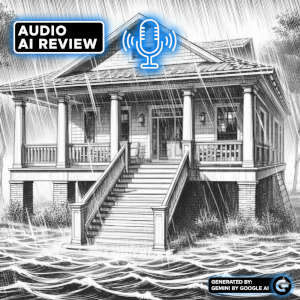AI Resources
Month 2 - Survivor Tools, Templates, and Outreach Strategy
This page provides practical tools, correspondence templates, and strategies for homeowners seeking to overturn the calculation of a Duplication of Benefits (DOB) resulting from an involuntary Forced Mortgage Payoff (FMP) and obtain eligible HUD CDBG-DR reconstruction funds.
By Murray Wennerlund, published , updated .
I. Immediate Action: Proactive Survivor Tools
If you are currently facing pressure from your mortgage servicer regarding the use of insurance funds, it is crucial to take the following preventative measures:
- Do Not Agree to Payoff: Do not voluntarily agree to apply the money to pay off or pay down your mortgage.
- Protect the Check: Never sign a release for the check to exclusive bank control. The NFIP Flood Insurance check is typically a two-party check identifying both you and the mortgage lender. Once you sign it and send it to the mortgage holder, you lose all legal control.
- Demand Written Communication: If a bank representative suggests applying your insurance money to the unpaid balance, ensure you get an email and a letter on company letterhead before agreeing to any payment method they suggest. Verbal agreement is the "wrong method" and can cost thousands of dollars later in the DOB process.
- Know Your Lenders Policy: Be aware that the FMP policy may be referred to internally by the lender as "At Risk of Ownership Change". The payoff occurs when restoration is determined to be non-"economically feasible" and the lender's "security is not lessened".
II. Templates for Advocacy and Appeals
Your primary objective is to prove to the state CDBG-DR program that you lacked legal control over the insurance funds, a standard supported by HUD guidance, thereby preventing the FMP amount from counting as a DOB.
A. Template: CDBG-DR Reimbursement Appeal for FMP
This template is for formally appealing the DOB determination to your state CDBG-DR Grantee Agency.
TO: [YOUR STATE GRANTEE AGENCY]: [Enter Managers in the appeals process]
SUBJECT: Appeal Request for Reimbursement of NFIP Funds Used in Forced Mortgage Payoff
RE: [Homeowners full name ] [Program Account or FEMA Claim or Insurance Claim number] [Physical Home Address]
I respectfully request an Exception Board Review regarding NFIP insurance funds used by our mortgage lender [LENDER NAME] to pay our mortgage in full.
Our insurance company [INSURANCE COMPANY NAME] sent us our NFIP funds made out to [NAMES ON INSURANCE CHECK]. We were instructed to bring the check to any [LENDER NAME] office. [LENDER NAME] took the check we had signed and without discussion applied the full amount to our mortgage. There was no offer of an escrow account or depositing the funds in a joint account for reconstruction. We were told by phone that [LENDER NAME] found no value in the home. The insurance funds were used by [LENDER NAME] to pay off our mortgage and not offered to us for reconstruction. At no time did we have legal control over the NFIP insurance money once we signed the check and handed it to [LENDER NAME].
Previous attempts to have [LENDER NAME] provide us with a letter stating it was a "Forced Mortgage Payoff" have failed. [LENDER NAME] detailed their actions in the attached letter dated [DATE ON LETTER]: "Our records indicate that on [MONTH, DAY, YEAR], your mortgage loan was paid in full using the insurance claim funds we received from [INSURANCE COMPANY NAME]".
We ask that you adjust our Duplication of Benefits calculation to reflect that our NFIP funds were used by our lender to pay our mortgage in full and should not apply as a DOB.
Referencing the most recent HUD Guidance dated June 12, 2019 (Docket No. FR-6169-N-O1, Section: IV.B.2. Availability of Resources Included in Total Assistance):
"Funds are not available to an applicant if the applicant does not have legal control of the funds when they are received. For example, if a homeowner's mortgage requires insurance proceeds to be applied to reduce the unpaid mortgage principal, then the lender/mortgage holder (not the homeowner) has legal control over those funds. The homeowner is legally obligated to use insurance proceeds for the purpose of reducing the unpaid mortgage principal and does not have a choice in using them for any other purpose, such as to rehabilitate the house. Under these circumstances, insurance proceeds do not reduce CDBG-DR rehabilitation assistance eligibility".
We are prepared to provide an affidavit attesting to when we lost control of our NFIP Insurance proceeds.
Respectfully,
[HOMEOWNERS FULL NAME]
[Full Address]
[Telephone Number]
Account Information: [Account Number] | [Case Worker Name]
B. Template: Exceptions Panel Review Request (Wells Fargo Example)
If your mortgage is held by an institution like Wells Fargo, you should send a specific review request, especially if you receive a denial letter or a refusal for a "Forced Mortgage Payoff Demand Letter".
TO: Your Case Worker / Case Manager / CTA
SUBJECT: Acct# 123456 Forced Mortgage Payoff Exceptions Panel Review Request
RE: Exceptions Panel Review (Appeals DOB calculations)
To Whom It May Concern: My mortgage servicer Wells Fargo Home Mortgage did not offer any option but to apply my NFIP Flood insurance to the unpaid balance of my home mortgage. Attached is a copy of the letter from Wells Fargo Home Mortgage.
Sincerely, [Name] [Account] [Address] [Phone]
III. Advanced Advocacy and Outreach Strategy
If the appeals process stalls, survivors must escalate their advocacy, often by collaborating and utilizing federal oversight resources.
1. Teaming Up (Part 3 Strategy)
Teaming up with others who have the same FMP issue is critical because state agencies often work against homeowners individually.
- Central Spokesperson: The strategy suggests conveying the message through a single spokesperson who can clearly articulate the issue, identify current HUD policy (June 20, 2019), and propose corrective action that supports the argument.
- Goal: Force the state to comply with HUD Guidance June 20, 2019.
2. Filing a Mismanagement Report to HUD OIG (Part 2 Strategy)
If state legal departments fail to reply or continue enforcing outdated FEMA policy requiring an unattainable "Forced Mortgage Payoff" letter (a bureaucracy that may increase disaster victim homelessness), homeowners should file a mismanagement report with the HUD Office of Inspector General (OIG).
Use the official online form provided by HUD OIG to submit your report.
It is also strongly recommended to send a notification letter to your regional program managers. While a response is unlikely, the purpose of the letter is to document that you have formally raised the issue.
- Focus of the Report: The OIG focuses on reports of fraud or "serious mismanagement with high dollar losses or significant community impact".
- The Mismanagement Argument: The state is incorrectly applying FEMA policy (2011)—which demanded a specific letter—to a HUD program, thereby ignoring the current HUD Guidance (June 20, 2019) that requires only proof the homeowner did not have legal control of the funds. This mismanagement financially impacts the homeowner and may lead to homelessness, which violates HUD's national objectives.
3. Engaging External Agencies
Homeowners can contact external agencies to report issues or seek assistance related to mortgage and lender conduct:
- Consumer Financial Protection Bureau (CFPB).
- Better Business Bureau (BBB).
- Federal Deposit Insurance Corporation (FDIC).
- State Attorney General's office.
Note: Most agencies may disregard or fail to respond to your request. The key purpose of sending an email or letter is to establish a documented record—so you can demonstrate that you exercised due diligence in addressing the matter.
4. Considering Legal Counsel
Disaster victims are advised that it is often best to hire an attorney on contingency for successfully litigating additional insurance payouts. If the lawyer is successful, legal fees for insurance coverage litigation will be credited and will not count as a duplication of benefits. This allows the homeowner to aim for the maximum amount of disaster recovery funds.

